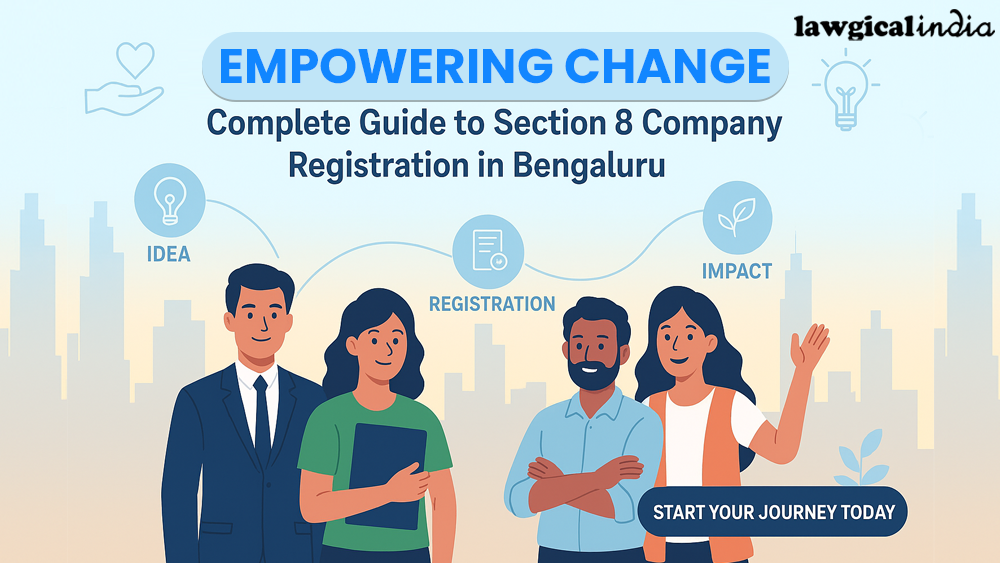Trust registration is done for various reasons and is a successful method for succession and property planning. Private trusts are controlled under the Indian Trust Act of 1882, which covers all of India except for the state of Jammu & Kashmir and the Andaman and Nicobar Islands. Additionally, this law does not cover the Hindu Undivided Family, Waqf, charitable donations, etc. In 2015, the Indian government changed the Income Tax Act and placed more emphasis on philanthropic endeavours.
The concept of "Trust" was first used in the distant past when people first organized Dharmashalas, educational institutions, medical institutions, planted trees, built water tanks, etc. However, since the start of the modern era, the trust concept has become more prominent for various reasons. Trust refers to giving property ownership to a third party for their benefit and the owners. There are two divisions within the Trust: public and private. Hindu Undivided Family, a company, an association of people, and anyone who is competent to sign a contract may establish a trust. Any person who qualifies for the contract, including the property owner, can serve as the trustee.
This article will give a complete guide regarding the documents required for trust registration.
What is Trust Registration in India?
Trust has deep historical roots in the form of Dharamshalas, tree plantations, building water tanks, educational and medical institutions, etc. But for various reasons, the idea of trust has become more prevalent today.
The term "trust" describes the conveyance of assets from a trustor to a trustee for the advantage of a third party (beneficiary). There are two groups of Trusts:
Public trust:
The general public is this trust's beneficiary. Public Religious Trust and Public Charitable Trust are other divisions of the Public Trust.
Private trust:
Families or individuals may be the beneficiaries of a private trust. It is further broken into the following categories:
Private Trusts with known beneficiaries and required shares
Private Trusts with unknown beneficiaries and required shares
Things to consider before a Trust Registration
Make sure to have the following checklist on hand before you begin preparing all the documents required for trust registration:
Address and Name of the Trust
The Trust's primary goals should be philanthropic or religious
A settler of the Trust
A minimum of two trustees for the Trust
Trust Deed
To avoid paying stamp duty, a small sum of cash or a check is given for any trust property, whether it be moveable or immovable. You must prepare the Trust Deed of the required value on stamp paper. The price of a trust deed varies from state to state but is roughly 8% of the property's value.
Documents Required for Trust Registration
It is necessary to have the trustees' names, occupations, addresses, ages, fathers' names, designations, mobile numbers, email addresses, and two photos.
Address Proof Required as of Trustee & Settler: - Passport, driver's license, or voter identification.
Water bill receipts, electricity bills, or ownership proof of the property are all necessary.
Rent Deed properly notarized with rent receipt and NOC from LandLord on Rs. 10/- Stamp Paper in the event of rent. Name of Landlord, Name of Father, and Address of Residence.
Authentic ID and the physical presence of all Settlers are necessary during trust registration.
At the time of trust registration, there must be two witnesses in person and an original form of identification.
Procedure for Trust Registration
These are a few simple steps needed to be followed for Trust Registration in India:
Draft the Trust Deed:
You must prepare a Trust Deed in the first step; it is optional but legally enforceable. These specifics must be present in a deed:
Address and name of the Trustor (the person who is setting up the Trust)
Addresses and names of the Trustees
Maximum and minimum trustee numbers
Objectives of the Trust Rules & Regulations of the Trust Parties participating in the Trust Address of the Trust's registered office
Set the trustee's term length at a min. of one year and a max. of five years.
Note: To operate the Trust, the trustee must not be a minor and unsound mind. Include information on the trustees' titles, ages, and occupations in the trust deed.
Choosing a name:
The second step is to choose a unique name for your Trust. You must submit a minimum of three names with preference. Ensure the name does not contravene or infringe upon a name or trademark already in use.
Trust Deed Registration:
Apply now to the Registrar of the Trusts with Jurisdiction to register your prepared deed. The settlor's signature is required on each page of the Trust Deed, which must be presented to the Registrar with a photocopy.
Create a bank account, a TAN, and a PAN:
The last step after registration is to apply for PAN and TAN allotment. Open a bank account after that, where all donations should be deposited.
80G and 12A Registration:
Although obtaining an 80G and 12A registration is not required, doing so entitles one to several advantages and exemptions under the Income Tax Act.
If you require any help during the Trust Registration process in India, Lawgical India will be pleased to assist you. At the lowest possible cost, our experts will guarantee your seamless process.
https://www.indiacode.nic.in/handle/123456789/2327?view_type=browse











